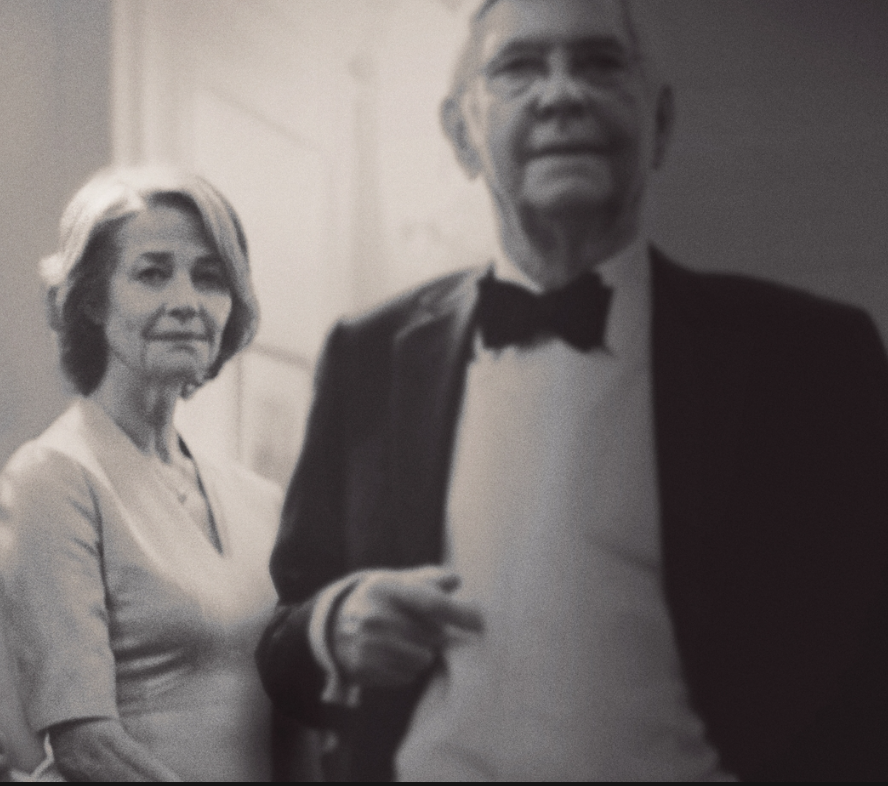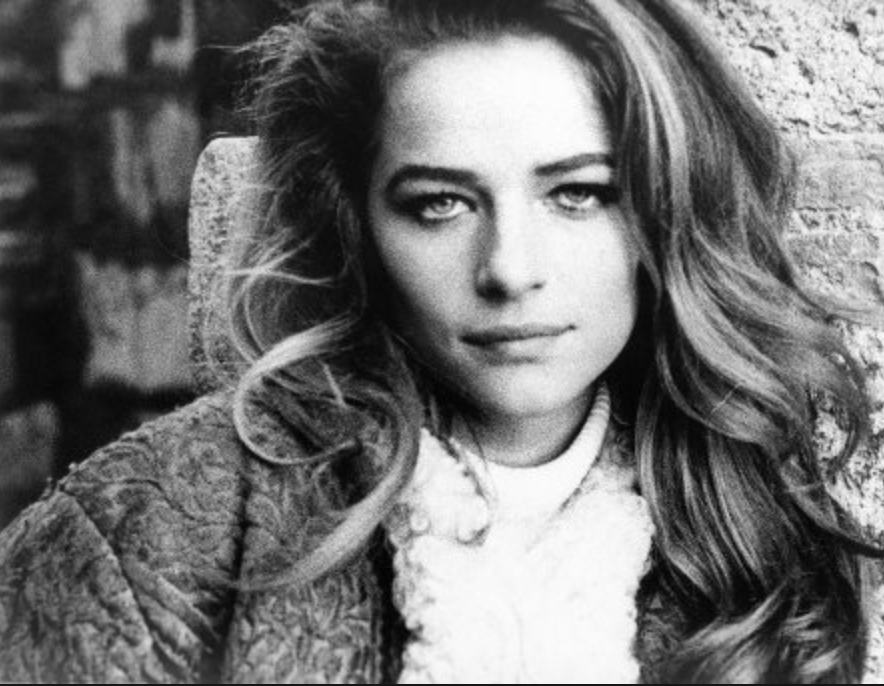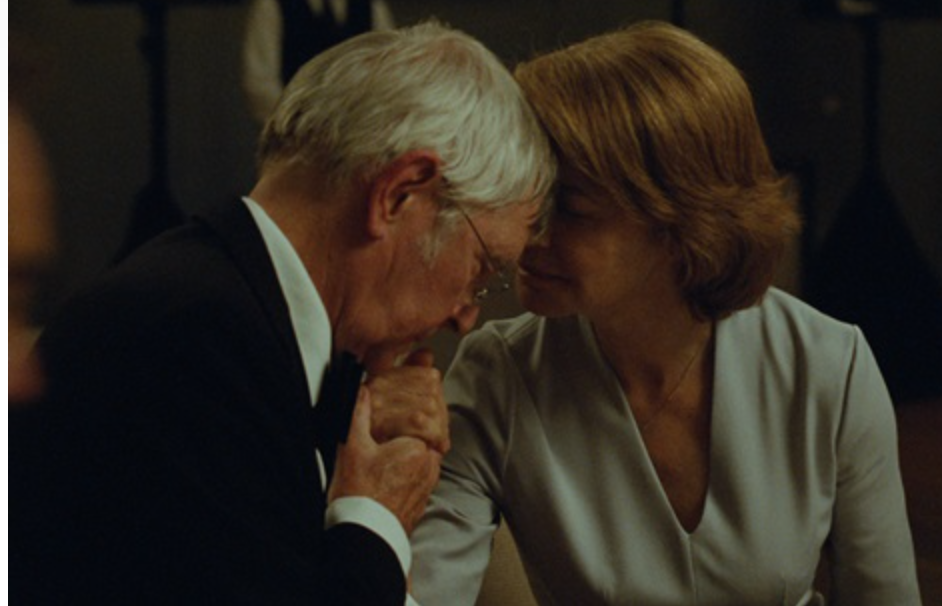 “45 Years” opens with a sixty-something woman walking briskly along an English country path. It is a grayish morning but not an unappealing one, and she is humming “Smoke Gets in Your Eyes” as she walks her dog on a leash. The song proves prescient: She greets her postman, enters her modest Norwalk home, hands the mail to her husband as he is groggily sipping his tea, and then watches her life explode, though it takes the duration of the film for her to realize what she has witnessed.
“45 Years” opens with a sixty-something woman walking briskly along an English country path. It is a grayish morning but not an unappealing one, and she is humming “Smoke Gets in Your Eyes” as she walks her dog on a leash. The song proves prescient: She greets her postman, enters her modest Norwalk home, hands the mail to her husband as he is groggily sipping his tea, and then watches her life explode, though it takes the duration of the film for her to realize what she has witnessed.
The woman is Kate (Charlotte Rampling), and her husband, Geoff (Tom Courtenay), has just received a letter stating that the body of his long-lost sweetheart has been discovered, perfectly preserved, in a Swiss glacier fifty years after she went missing on an Alpine hiking holiday the two had taken together. “It was a fissure – like a narrow crack in the rock,” says Geoff of the fault that claimed the woman’s life, but he may as well be describing the fault that will now splinter his marriage. Kate, with whom he is poised to celebrate his forty-fifth anniversary, has heard virtually nothing of this girlfriend he calls “his Katya” and for whom he has been named next of kin. Thus this film, directed and adapted by Andrew Haigh from David Constantine’s very fine short story “Under the Dam,” is a ghost story with no real ghost, not to mention an infidelity tale with no real infidelity.
This is Haigh’s third feature, and it is in keeping with the themes of intimacy and sexuality that he’s explored in all his work (including the now-canceled HBO series “Looking”). Though his previous focus has been only on his own world of young, urban gay men, this new terrain affords him a remove that sets a tone for the film – as does Rampling’s face. With now-hooded eyes and a mouth still wide but no longer full, it is defined by the extraordinary bone structure that once earned her the nickname “The Look”; the beauty remains, distilled to its essence by time.
Haigh marshals Rampling’s and Courtenay’s pasts as 1960s British icons (the latter appeared in the likes of “Doctor Zhivago” and “The Loneliness of the Long Distance Runner”) as shorthand for a departed insouciance. Now physically humbled by open heart surgery (no metaphor left unturned here!), Geoff is further undone by the reemergence of his past love, whose frozen youth triggers a mourning for a future never realized – or for any future, really. In turn, Kate is destroyed by a past she never knew existed – by the revelation that her husband, for whom she assumed she was the only one, ardently loved another.
 As their anniversary festivities approach, the gap between the couple widens. Grieving, he sinks into himself and sees signs of decay everywhere: in the global warming that melted the snow obscuring Katya’s body, in his friends’ physical and mental deterioration. But while Constantine’s short story is told from Geoff’s perspective, Haigh sticks closer to the normally stoic Kate, who is ungrounded by the revelation that her relationship’s foundation may be as mythological as the region’s ancient druids evoked in the shots of misty Norfolk. The past threatens to rise everywhere in this landscape.
As their anniversary festivities approach, the gap between the couple widens. Grieving, he sinks into himself and sees signs of decay everywhere: in the global warming that melted the snow obscuring Katya’s body, in his friends’ physical and mental deterioration. But while Constantine’s short story is told from Geoff’s perspective, Haigh sticks closer to the normally stoic Kate, who is ungrounded by the revelation that her relationship’s foundation may be as mythological as the region’s ancient druids evoked in the shots of misty Norfolk. The past threatens to rise everywhere in this landscape.
Above all, “45 Years” is a study of domestic restraint shadowed by time. Its visual palette is muted – all sand and salt, with wide frames only half-filled by the couple and light filtered through windows and half-shut doors. A sex scene reveals a shared, tender disappointment in the ravages of age. A silence reigns that is eerily punctuated by wind whipping around the house and songs of their lost youth.
Aesthetically, the film draws more on Japanese horror than the “Marigold Hotel”-style brass that is contemporary British cinema’s mainstay.  Emotionally, it hinges upon Rampling herself, who has always boasted the economy of a woman so exquisite that she’s aware her slightest movement is being observed. As Kate, she turns that self-possession on its head brilliantly, essentially asking what happens to such a person when they learn they may not be the apple of another’s eye. During her husband’s anniversary party speech, she remains as gorgeously still as ever; her gaze, as unflinching. Then rage, betrayal, and self-doubt flash across her features with a force that shatters us as even as the couple’s guests blithely toast them with champagne. It is the best minute of acting in 2015 cinema.
Emotionally, it hinges upon Rampling herself, who has always boasted the economy of a woman so exquisite that she’s aware her slightest movement is being observed. As Kate, she turns that self-possession on its head brilliantly, essentially asking what happens to such a person when they learn they may not be the apple of another’s eye. During her husband’s anniversary party speech, she remains as gorgeously still as ever; her gaze, as unflinching. Then rage, betrayal, and self-doubt flash across her features with a force that shatters us as even as the couple’s guests blithely toast them with champagne. It is the best minute of acting in 2015 cinema.
This was originally published in Word and Film.
